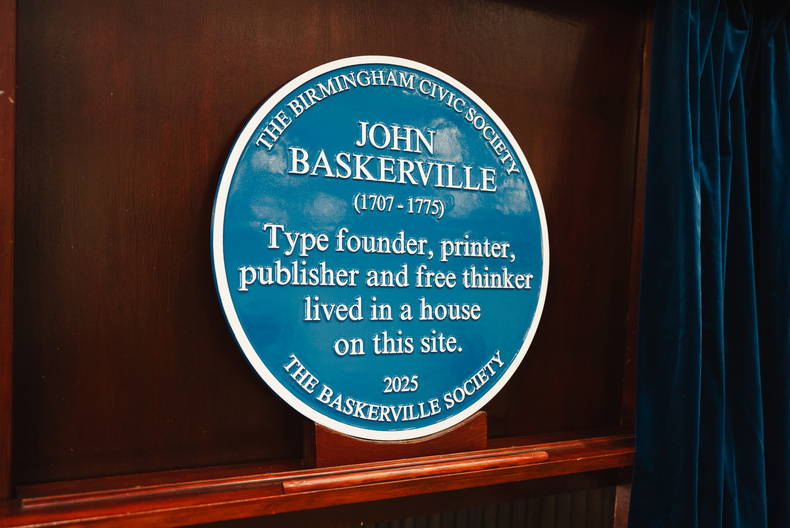Blue plaque honours Birmingham’s boldest free thinker - 250 years on

Printing pioneer John Baskerville has been immortalised with a blue plaque in Birmingham - two and a half centuries after his death.
Unveiled by the Lord Mayor of Birmingham and bestselling author and journalist, Simon Garfield, the plaque celebrates Baskerville’s legacy as a revolutionary in print and design.
“We should be celebrating everything that's great in Birmingham, especially the people,” said the Lord Mayor, Councillor Ken Wood.
“This blue plaque will bring Baskerville to the attention of the general public and will make people think about him and his contribution.”
The tribute is borne out of a ground-breaking research project - Small Performances: Baskerville Punches - led by Birmingham City University (BCU), the University of Cambridge and Cambridge University Library.
Now in its second year, the project explores Baskerville’s innovative type design and its lasting influence - from 18th-century presses to billions of digital screens today.
“People encounter Baskerville on a daily basis – via newspapers, magazines and screens - and may not even realise,” said project investigator Dr Caroline Archer, Professor of Typography at BCU and Chair of the Baskerville Society.
“This plaque is an opportunity to mark his impact and secure the recognition he deserves.”
Born in Wolverley, Worcestershire (1707-1775), Baskerville established his printing and typefounding business in Birmingham after moving to the city in 1726/28.
Best known for creating the Baskerville typeface, which remains one of the most influential typefaces in the world, his innovations helped revolutionise the printing industry.
He also developed a new, more refined method of printing that involved improvements in paper, ink, and press machinery.
Garfield, author of Baskerville: The Biography of a Typeface, said: “John Baskerville is part of a huge tradition of type-founding and printing in Britain, which is something we take for granted.
“His work lives on in the digital world - and it should be celebrated.”
Professor Archer added: “We thought long and hard about how to credit him on the plaque. He wanted to be remembered as a free thinker - and we’ve honoured that.”
The plaque is due to be installed on Baskerville House later this year.
